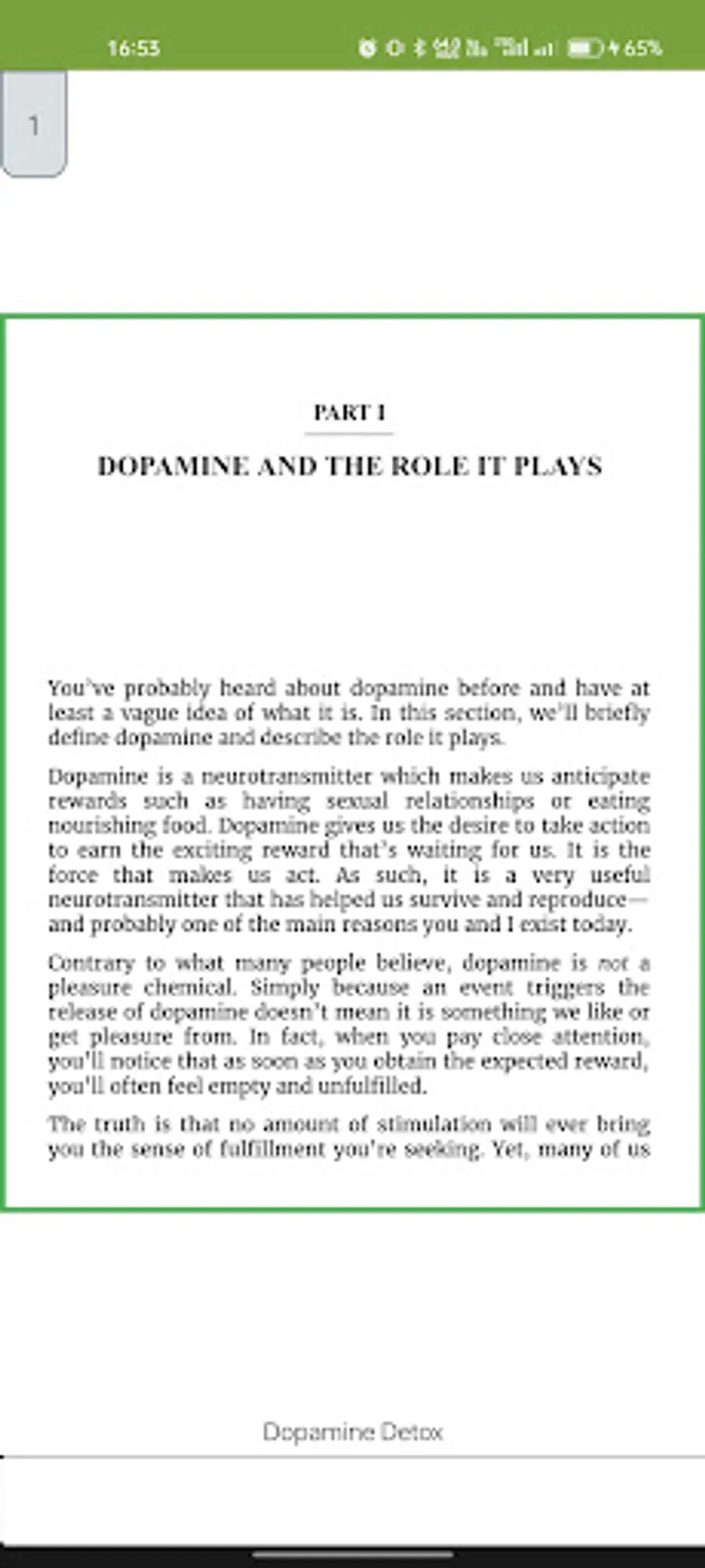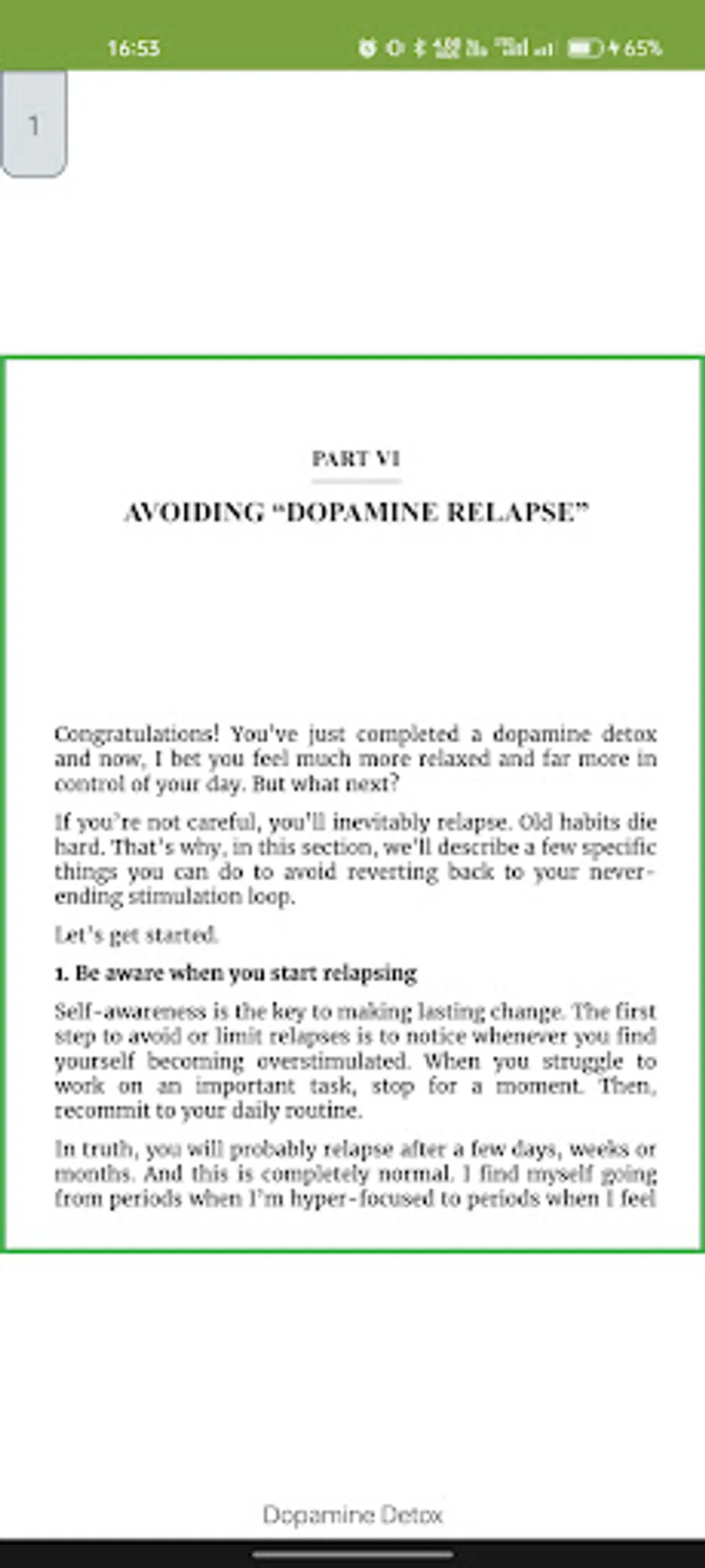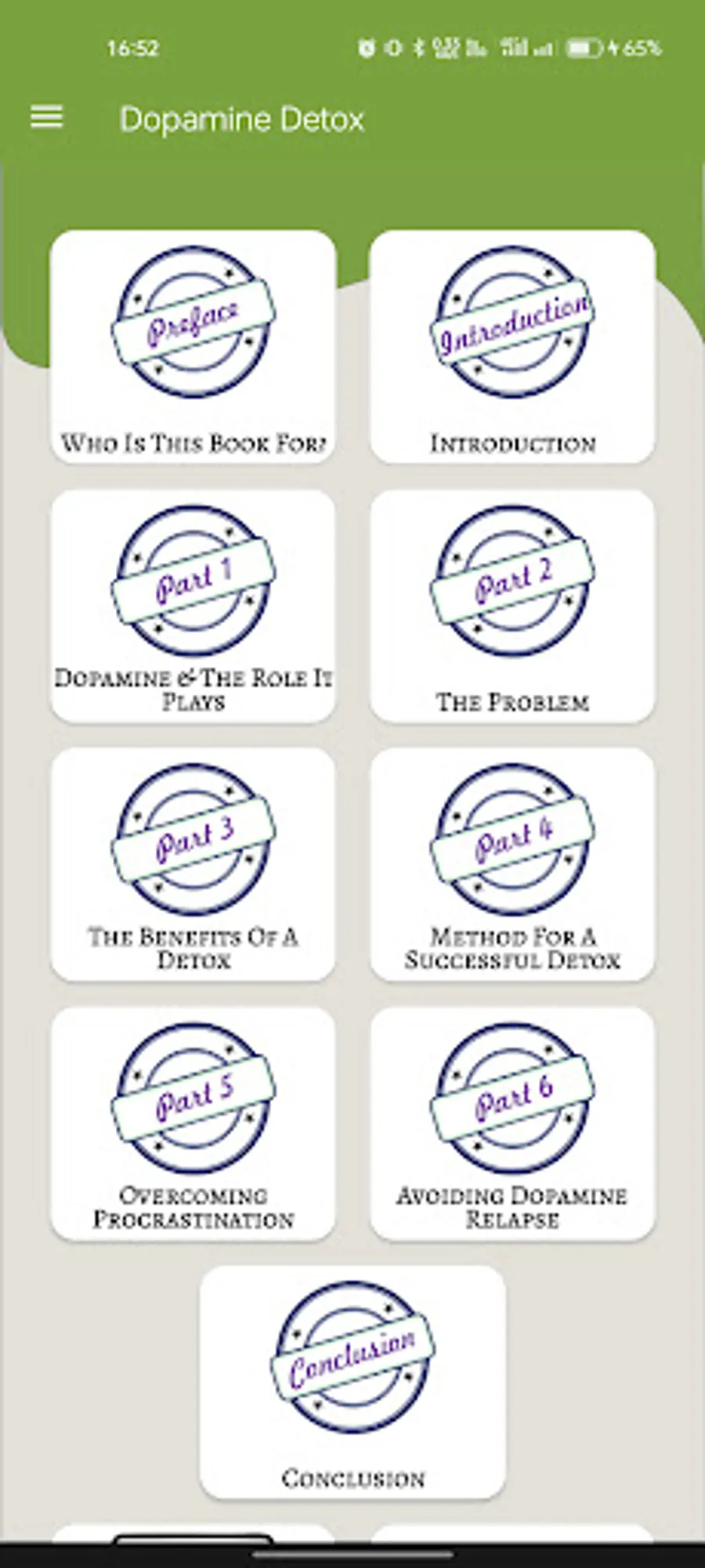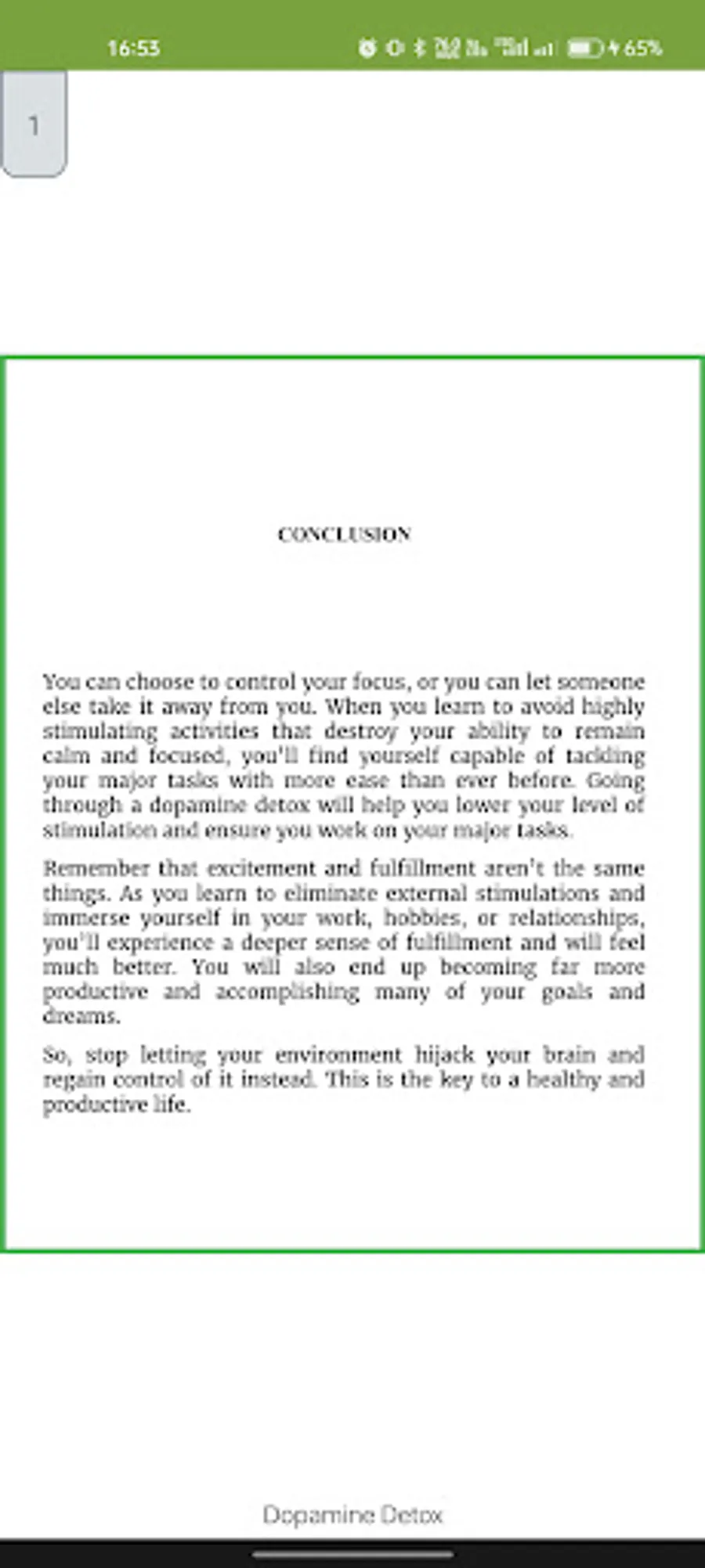Dopamine Detox
Marcos Lynch
Free
100+
downloads
About Dopamine Detox
Dopamine is a neurotransmitter which makes us anticipate rewards.
It is the force that makes us act.
Simply because an event triggers the release of dopamine doesn’t mean it is something we like or get pleasure from. No amount of stimulation will ever bring you the sense of fulfilment you’re seeking. Yet, many of us are constantly overstimulated, looking for the next source that could trigger a release of dopamine.
People get addicted to highly stimulating activities (such as watching video games, immersing themselves in social media or reading emails).
Under such a state of stimulation, any task that requires concentration becomes much harder to perform.
Dopamine’s role is to encourage you to act to earn the anticipated reward needed for your survival or reproduction. This is dopamine’s primary role. Unfortunately, in today’s world, the process has been hijacked, which leads to many unintended consequences,
The more our environment or actions trigger the release of dopamine, the more we’ll want our next “shot” of dopamine. In fact, this self-reinforcing mechanism is also how many addictions work.
By continuously triggering the release of dopamine through different means — such as drug or alcohol consumption — addicts actually strengthen their tolerance to such stimulation.
Thanks to ever more sophisticated algorithms, companies have become better at hooking us into their services.
Whenever you see a notification, you anticipate the reward you’ll receive when clicking on it, which triggers the release of dopamine in your brain. However, this doesn’t make you happy or fulfill you — at least not for long.
Whoever has succeeded in staying away from the internet or social media for a few days, understands what a waste of time and focus such activities can be.
Sugar is addictive but on the same level as nicotine, not drugs like heroin.
Dopamine and constant stimulation can impair your ability to think long term.
It is the force that makes us act.
Simply because an event triggers the release of dopamine doesn’t mean it is something we like or get pleasure from. No amount of stimulation will ever bring you the sense of fulfilment you’re seeking. Yet, many of us are constantly overstimulated, looking for the next source that could trigger a release of dopamine.
People get addicted to highly stimulating activities (such as watching video games, immersing themselves in social media or reading emails).
Under such a state of stimulation, any task that requires concentration becomes much harder to perform.
Dopamine’s role is to encourage you to act to earn the anticipated reward needed for your survival or reproduction. This is dopamine’s primary role. Unfortunately, in today’s world, the process has been hijacked, which leads to many unintended consequences,
The more our environment or actions trigger the release of dopamine, the more we’ll want our next “shot” of dopamine. In fact, this self-reinforcing mechanism is also how many addictions work.
By continuously triggering the release of dopamine through different means — such as drug or alcohol consumption — addicts actually strengthen their tolerance to such stimulation.
Thanks to ever more sophisticated algorithms, companies have become better at hooking us into their services.
Whenever you see a notification, you anticipate the reward you’ll receive when clicking on it, which triggers the release of dopamine in your brain. However, this doesn’t make you happy or fulfill you — at least not for long.
Whoever has succeeded in staying away from the internet or social media for a few days, understands what a waste of time and focus such activities can be.
Sugar is addictive but on the same level as nicotine, not drugs like heroin.
Dopamine and constant stimulation can impair your ability to think long term.





